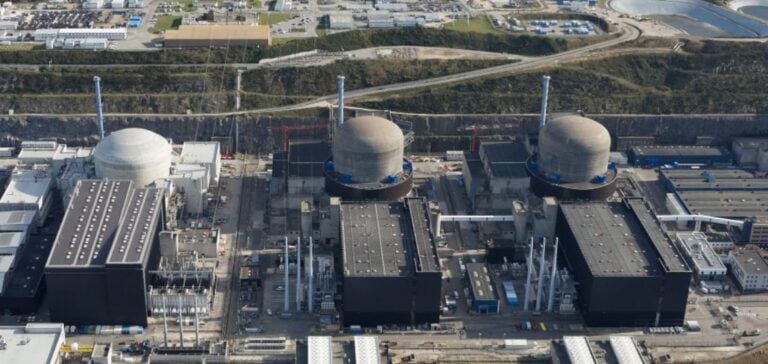The Flamanville EPR in the Manche region of France reaches a decisive milestone with its first nuclear reaction, known as “divergence”, on September 3, 2024.
Following approval from the French Nuclear Safety Authority (ASN), EDF will launch this key operation to begin the reactor’s ramp-up to full power.
This technical phase consists of gradually reaching different power levels, up to 25% of nominal capacity, before a planned connection to the power grid by late autumn.
Luc Rémont, CEO of EDF, comments on this progress via LinkedIn, stressing that this development marks the start of a strategic ramp-up.
He points out that the construction of the EPR has made it possible to maintain and strengthen skills that are essential to the nuclear sector, at a time when France is preparing a revival of this industry.
This event takes place against a backdrop of energy tensions in Europe, where debates on security of supply are central.
Rigorous testing underway to secure ramp-up
EDF is currently carrying out an intensive testing program to guarantee the reactor’s safety and reliability.
These tests include the assessment of more than 1,500 technical and safety criteria, necessary to validate each phase of the ramp-up.
The aim is to ensure that each step taken meets the most stringent standards before any electricity is produced for the grid.
The process involves meticulous adjustments and continuous checks to limit any technical or operational risks.
The reactor is scheduled to reach 25% power before the end of autumn, at which point it can be connected to the grid.
This intermediate stage is crucial for verifying the stability of the system before considering an increase to 100% capacity, an operation which the company plans to carry out over several months.
At this stage, EDF is not giving a precise date for reaching full capacity, indicating that ongoing adjustments will be necessary depending on test results.
Delays and increased costs: the EPR challenge
The Flamanville EPR, initially scheduled for commissioning in 2012, has experienced successive delays and significant budget overruns.
The cost of the project is now estimated at 13.2 billion euros, against an initial estimate of 3.3 billion.
These cost overruns, due to technical complications and heightened safety requirements, pose a challenge for EDF, which has to keep the schedule and costs under control so as not to compromise its other projects.
In fact, the Cour des Comptes has revised these costs upwards for 2020, potentially reaching 19 billion euros if financing costs are included.
This situation reflects the difficulties encountered in implementing new-generation nuclear technologies.
Delays are also having an impact on the industry’s strategy in Europe, where decisions on nuclear power are being taken cautiously because of the associated costs and risks.
Mixed reactions to the announcement of the first fission
The announcement of the first nuclear reaction at the Flamanville EPR is provoking divergent reactions.
While EDF sees this as an important technical milestone, others, notably Greenpeace France, are criticizing what they see as a “political start-up”.
According to Yannick Rousselet, nuclear safety consultant for the organization, this event does not mean actual commissioning for the general public.
This opposition illustrates the tensions surrounding nuclear projects in France, between issues of energy sovereignty and criticism of technological choices.
The Flamanville EPR, now France’s 57th nuclear reactor with a capacity of 1,600 MW, embodies the ambitions to modernize and decarbonize the French nuclear fleet.
This commissioning comes at a time when energy security and independence are at the heart of European industrial strategies.
EDF is counting on this achievement to reinforce its role as leader in low-carbon energy production, while navigating between economic and technological challenges.






















